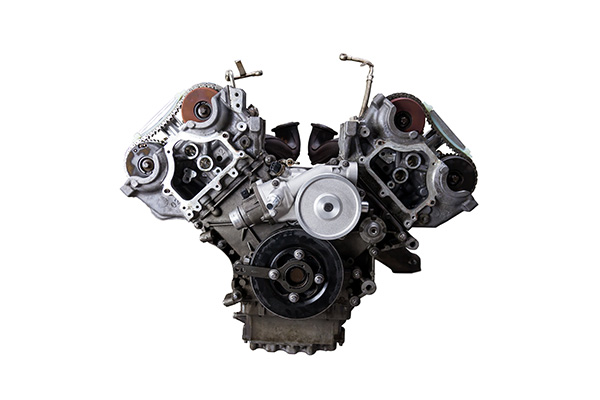
Toyota has a well-earned reputation for building reliable vehicles, and its V6 engines are often praised as some of the most dependable in the industry. But is this reputation justified, or is it just a case of brand loyalty? If you’re considering buying a Toyota with a V6 or already own one, understanding what makes these engines so reliable—and where they might have weaknesses—can help you make informed decisions about maintenance and longevity.
What Makes Toyota V6 Engines So Reliable
Toyota’s V6 engines are known for their durability, and this isn’t just luck. The company follows strict engineering and manufacturing standards to ensure long-term reliability.
One of the biggest factors is Toyota’s conservative engineering approach. Instead of pushing the limits of power output at the expense of reliability, Toyota designs its V6 engines with a focus on longevity. The materials used in key components, such as the pistons, timing chains, and cylinder heads, are built to withstand years of wear and tear.
The 3.5L V6 (2GR-FE) is one of Toyota’s most well-known and widely used engines. Found in vehicles like the Camry, Tacoma, Highlander, and Lexus RX, this engine features Dual Overhead Camshafts (DOHC), an aluminum block and heads, and Toyota’s Variable Valve Timing (VVT-i) system. These features help optimize fuel efficiency, power delivery, and overall reliability.
Another key reason for the long lifespan of Toyota V6 engines is their ability to handle high mileage. Many Toyota owners report reaching 250,000 miles or more with proper maintenance. Unlike some manufacturers that introduce complex and high-maintenance technology, Toyota prioritizes durability and ease of repair.
Do Toyota V6 Engines Have Common Problems
While Toyota V6 engines are incredibly reliable, no engine is completely free of potential issues. Some problems have been reported across different V6 models, though they tend to be more about maintenance needs rather than major design flaws.
One known issue in certain Toyota V6 engines is timing cover oil leaks. The gasket sealing the timing cover can degrade over time, allowing oil to seep out. While this usually starts as a minor leak, ignoring it can lead to more significant oil loss and engine wear. Checking for oil leaks during routine maintenance can prevent bigger problems down the road.
Another concern is carbon buildup on intake valves, particularly in direct-injected engines. Over time, deposits form on the intake valves, leading to rough idling, reduced power, and poor throttle response. Regular fuel system cleaning and using high-quality gasoline can help minimize this buildup.
Some Toyota V6 models also experience water pump failures. The water pump is responsible for circulating coolant through the engine, and when it starts to fail, it can lead to overheating. Monitoring coolant levels and replacing the water pump at recommended intervals can help prevent major engine damage.
How to Extend the Life of a Toyota V6 Engine
Toyota V6 engines are built to last, but they still require proper maintenance to reach their full potential.
Regular oil changes are needed. Toyota recommends changing the oil every 5,000 to 7,500 miles, depending on the type of oil and driving conditions. Using high-quality synthetic oil can further extend engine life.
Inspecting and replacing spark plugs at the recommended intervals keeps the engine running efficiently. Toyota V6 engines often use iridium spark plugs, which can last up to 100,000 miles, but should still be checked for wear.
Cooling system maintenance is essential. Overheating is one of the quickest ways to damage an engine, so replacing the coolant, checking the radiator, and ensuring the thermostat functions properly will help prevent problems.
Timing chain maintenance is another important factor. Some older Toyota V6 engines use a timing belt, which should be replaced around 90,000 to 100,000 miles. Newer models use timing chains, which generally last the lifetime of the engine but should still be inspected for any unusual noises.
Are Toyota V6 Engines Worth It
Toyota V6 engines offer a great balance of power, fuel efficiency, and long-term reliability. They provide a smoother driving experience than many four-cylinder engines while avoiding the complexity and maintenance demands of turbocharged options. Whether in a sedan, SUV, or truck, Toyota’s V6 engines continue to be a solid choice for drivers who want a vehicle they can depend on for years.
While no engine is completely problem-free, Toyota’s track record of producing long-lasting V6 engines is hard to beat. With regular maintenance and attention to minor issues before they escalate, these engines can last well beyond 250,000 miles.
A Toyota V6 can last for years—but only with the right care. Whether you need an oil change, a timing belt replacement, or a full inspection, Oceanworks Berkeley has the expertise to keep your Toyota running strong. Call today to schedule your service!